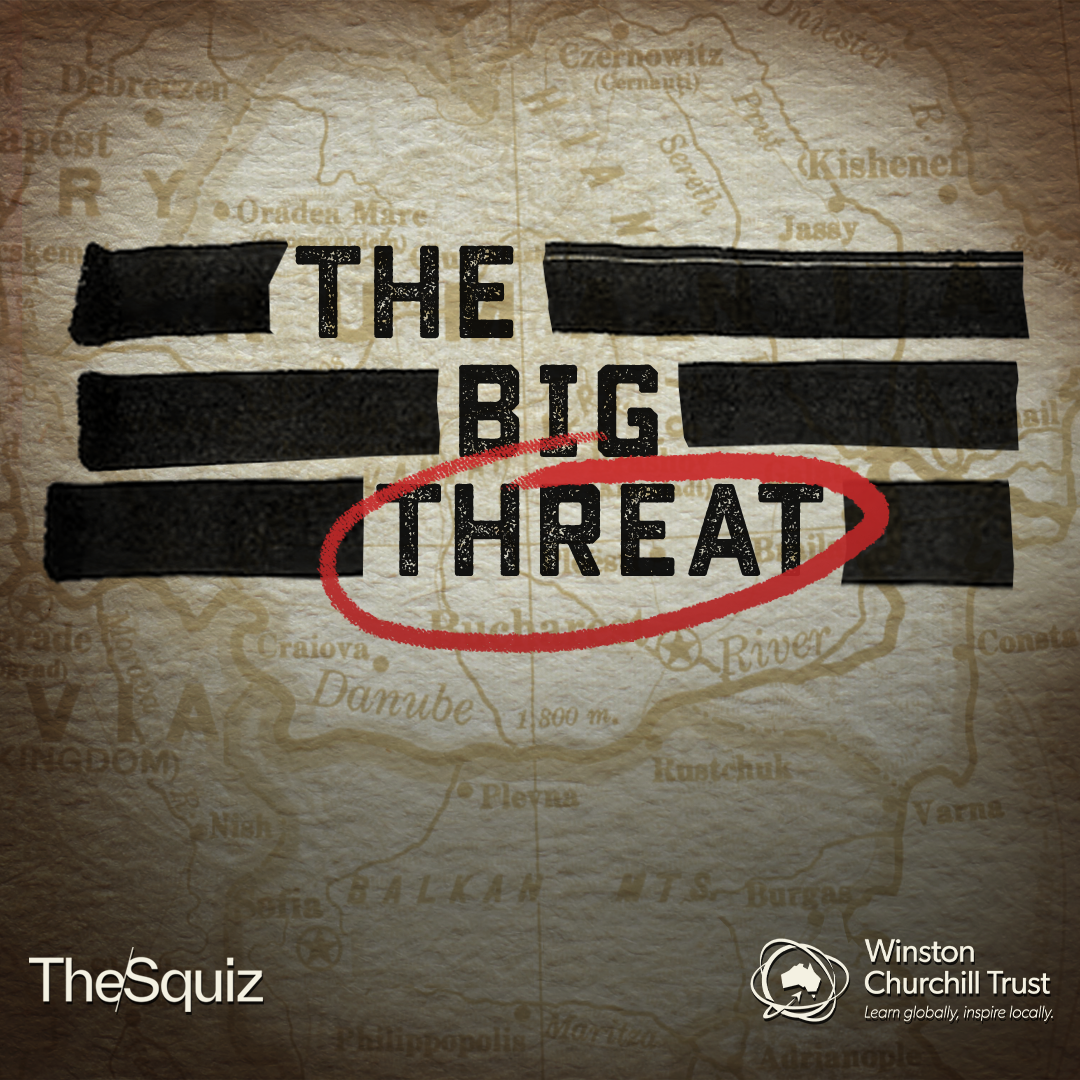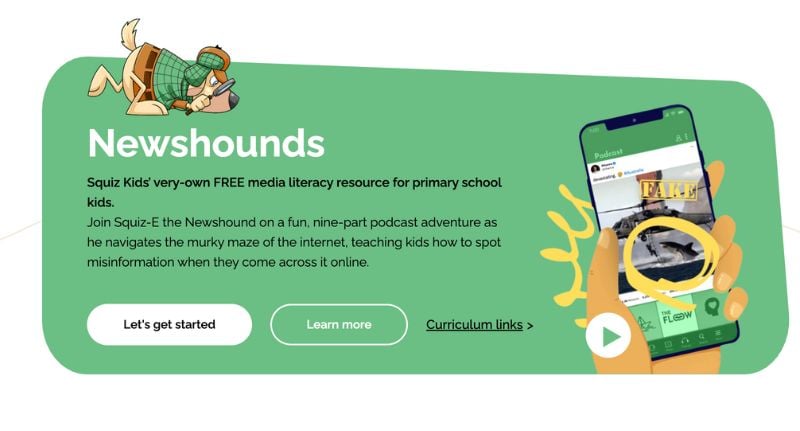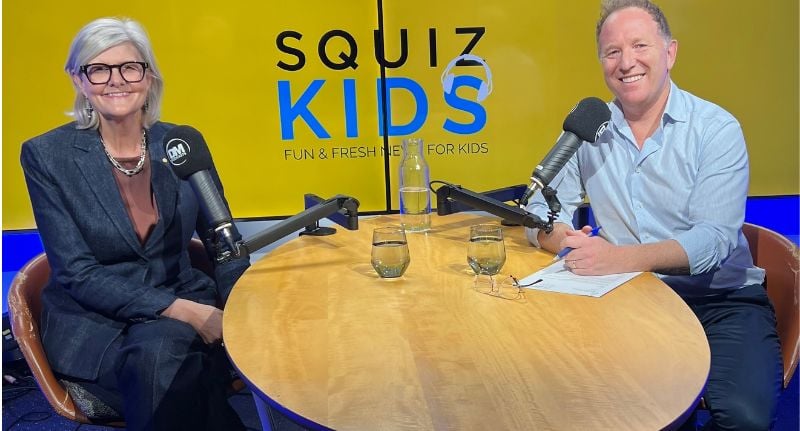As false information continues to shape public opinion, influence elections and blur the line between fact and fiction online, a new documentary podcast from Squiz Media is taking a closer look at how governments and institutions are responding.
Titled The Big Threat, the seven-part series follows journalist and Squiz Kids director Bryce Corbett as he travels through five countries, France, the United Kingdom, the United States, Estonia and Finland, as part of a Churchill Fellowship.
His aim: to understand how other democracies are equipping their populations to recognise and resist misinformation, and what Australia can learn from them.
Corbett, who has worked in Australian media for nearly three decades, said the idea for the podcast stemmed from an observation made at home. While he grew up in a household where newspapers were always lying around and the nightly news was a shared family event, his own kids were getting their information almost exclusively from social media feeds.
That contrast eventually led to the creation of Squiz Kids, a daily news podcast for children.
“I’m a journalist and have been for almost 30 years,” Corbett told Mediaweek, “but first and foremost I’m a father.” It was through that lens that he began to notice how drastically children’s media habits were changing, and how ill-prepared many of them were to navigate digital information.

Understanding the global context
The Big Threat explores media literacy as a growing policy priority, and in some countries, a matter of national security.
In Estonia and Finland, both of which share a border with Russia, media literacy is treated as foundational to national resilience. Every teacher in Finland is trained in digital literacy, while in Estonia, the Ministry of Defence is directly involved in the delivery of media education programs.
Corbett said the urgency in these countries stems from their geopolitical context. “These are countries that share a border with Russia. They have been subject to propaganda for the entirety of their existence,” he said.
“They know that they only exist for as long as they have a media literate population, a population that can tell online facts from fiction, and a population that has been inoculated against fake news.”
In Estonia and Finland, he explained, media literacy is not just part of education policy, it’s embedded within national defence strategies, rather than being seen as a ‘nice-to-have’. In both cases, media education isn’t left to chance, it’s built into national policy frameworks and treated as a core civic skill.
While Australia has made steps in the right direction, Corbett observed that the country is still playing catch-up.
His Churchill Fellowship left him with the impression that Australia lacks a coordinated national strategy and dedicated funding in this space. “Adults understand it,” he said of the misinformation threat, “but I guess the question really is: do we really understand it?”
Although Australia is geographically distant from many global conflicts, Corbett believes that digital proximity has erased those boundaries.
“We were always kind of like, well, that’s all happening a long way away,” he said. “But we live in a digital age now where that is no longer the case.” From the misuse of deepfakes to the spread of false narratives during elections, Corbett sees Australia as just as vulnerable as any other democratic nation.
Throughout the podcast series, Corbett speaks with educators, researchers and policymakers working on the frontlines of what many now refer to as information warfare.
Where education fits into the solution
Corbett’s podcast follows the earlier launch of Newshounds, a free classroom program from Squiz Kids designed to help primary students spot misinformation online.
Since its release in 2023, more than 4,500 teachers have adopted it in their classrooms. The goal, according to Squiz Media, is to build critical thinking skills early, long before students receive their first smartphones.
He draws an analogy: “In the same way that we don’t send kids to the beach without teaching them to swim, we shouldn’t be giving them a smartphone and letting them loose on the internet without teaching them how to spot online fact and fiction.”
While bans on social media for young people are gaining political traction, Corbett urges caution.
He believes such restrictions might drive young users to even less regulated platforms. “My concern is if we ban social media and ban the accessing platforms that we know about, they’re just going to start congregating on platforms that we don’t know about,” he said. “Platforms that are on the dark web, platforms over which we have no control or even oversight whatsoever.”
For Corbett, the answer is not to rely on bans alone, but to complement any regulatory moves with robust, early-stage education.
“Any expert you speak to, and every expert I spoke to in the course of my Churchill Fellowship, said that you’ve got to complement it with education,” he said. “And crucially, that education has to happen before kids get a smartphone in their hands. And that means it has to happen at primary school.”

A challenge of our time
Across the seven episodes of The Big Threat, Corbett interviews a wide range of voices, from Stanford University academics to Estonian education ministers, UK non-profits, Finnish government officials and French media literacy campaigners. The final episode turns back to Australia, featuring conversations with Governor-General Sam Mostyn, former South Australian Premier Jay Weatherill, and University of Canberra Vice Chancellor Bill Shorten.
As the series points out, the stakes are high. Corbett refers to misinformation as “one of the defining challenges of the digital age”, a phrase that captures both the urgency and the scale of the problem. It’s a challenge that intersects with national security, democracy, childhood development, education, and the future of civic trust.
“As a parent you try not to be full of fear and anxiety the whole time,” Corbett said. “There’s so much that’s amazing about new technology… but at the same time, you can’t help but be worried.”
Where to listen
Episode one of The Big Threat is available now on The Squiz’s News Club podcast channel.
